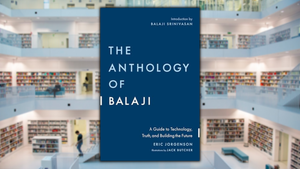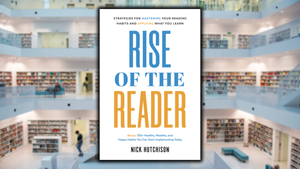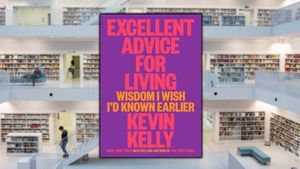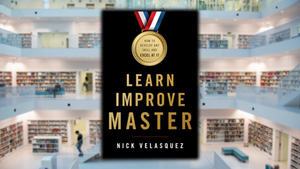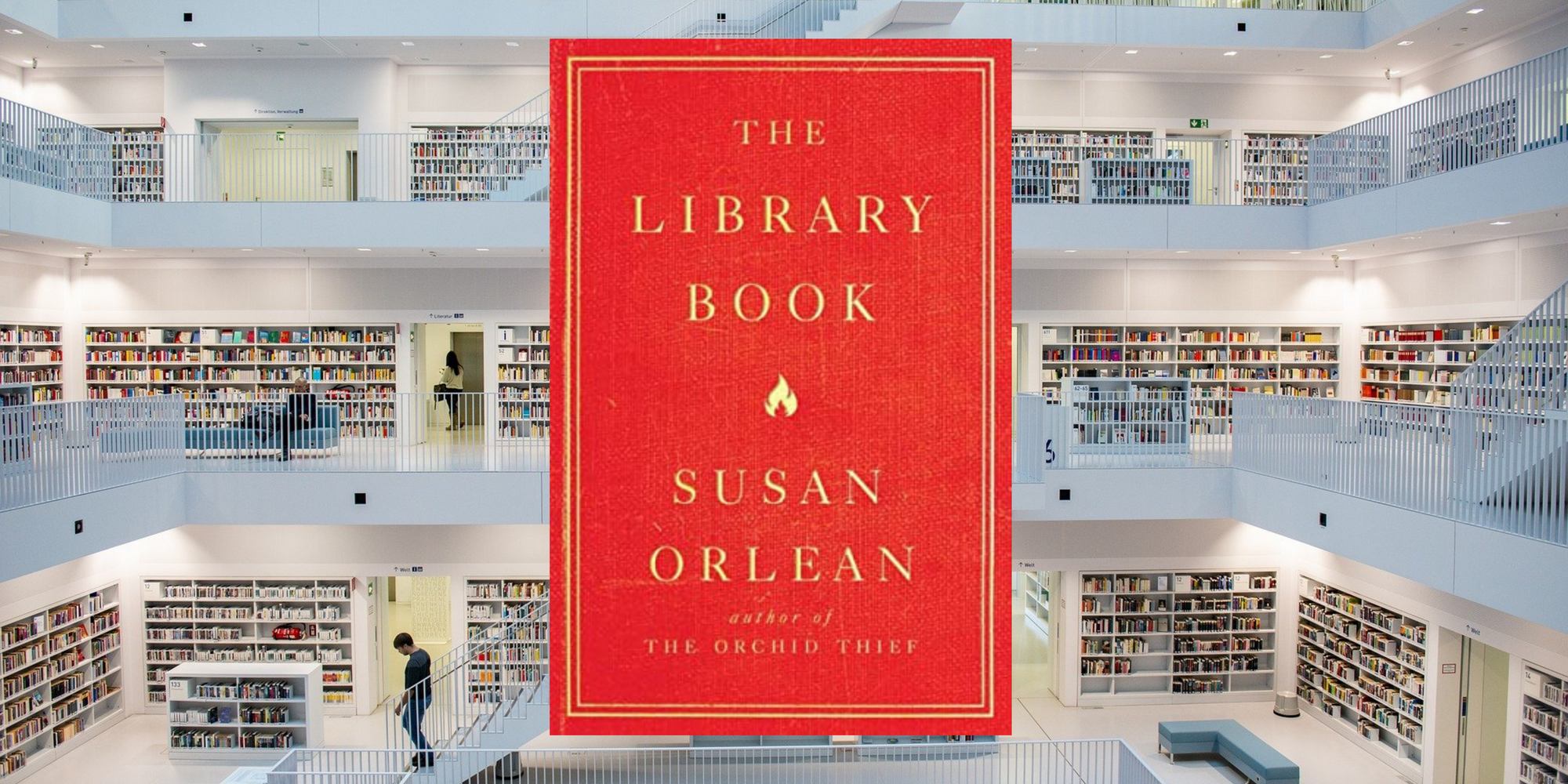
Summary:
I’m sitting at an airport bar in Toronto, about to dive into The Library Book, by Susan Orlean, which I just picked up in the airport bookstore about twenty minutes before.
Of course, I knew I’d like it - I mean, it’s about books - but I had no idea that I wouldn’t want it to end, that I would angrily confront anyone who tried to get me to put it down, and that I would push it into the hands of dozens of people after I read it, from close family members to strangers who mentioned in passing that, yea, I kinda like books too. Oh, yea? Then read this! It’s excellent! It’s about libraries! And fires! And books! And librarians! And literature! And life!
Specifically, The Library Book details the events of April 29th, 1986, when a massive fire devastated the Los Angeles Public Library, at one point reaching 2,000 degrees Fahrenheit (more than five times the temperature at which paper burns) and lasting for more than 7 hours. When all was said and done, 400,000 books were completely destroyed, 700,000 books were partially damaged, and the police had exactly zero suspects.
Enter: one Harry Peak, underemployed actor, and master storyteller, said by many (but not all) to be at the library that morning, and who subsequently became the focus of the criminal investigation, and later, Susan Orlean’s book. You can almost think of Orlean’s account as In Cold Blood...except with books!
There’s far more to this book than ever made it into my notes (library and librarian trivia that I loved reading once, but which wouldn’t necessarily have made it into my notes), but this was easily the best book I read in 2019. The stories, the suspense, the research - the books!
I honestly never really gave librarians enough credit for all they do and all they’re capable of. You should see what they have to deal with, the kinds of crazy questions and requests people bring to their desks.
Before reading The Library Book - ashamedly - this one woman I met told me that she was studying Library Sciences, and I think I said something like, “How long does it take to learn the Dewey Decimal System?” That was my previous level of ignorance here, and, I don’t think I ever got a second date with her. Must have been something I said.
Anyway...I really can’t recommend The Library Book highly enough. It’s simply excellent. It’s almost worth reading just for the Fahrenheit 451 references alone, plus the story of the author trying to burn a book herself. For research, of course. Research.
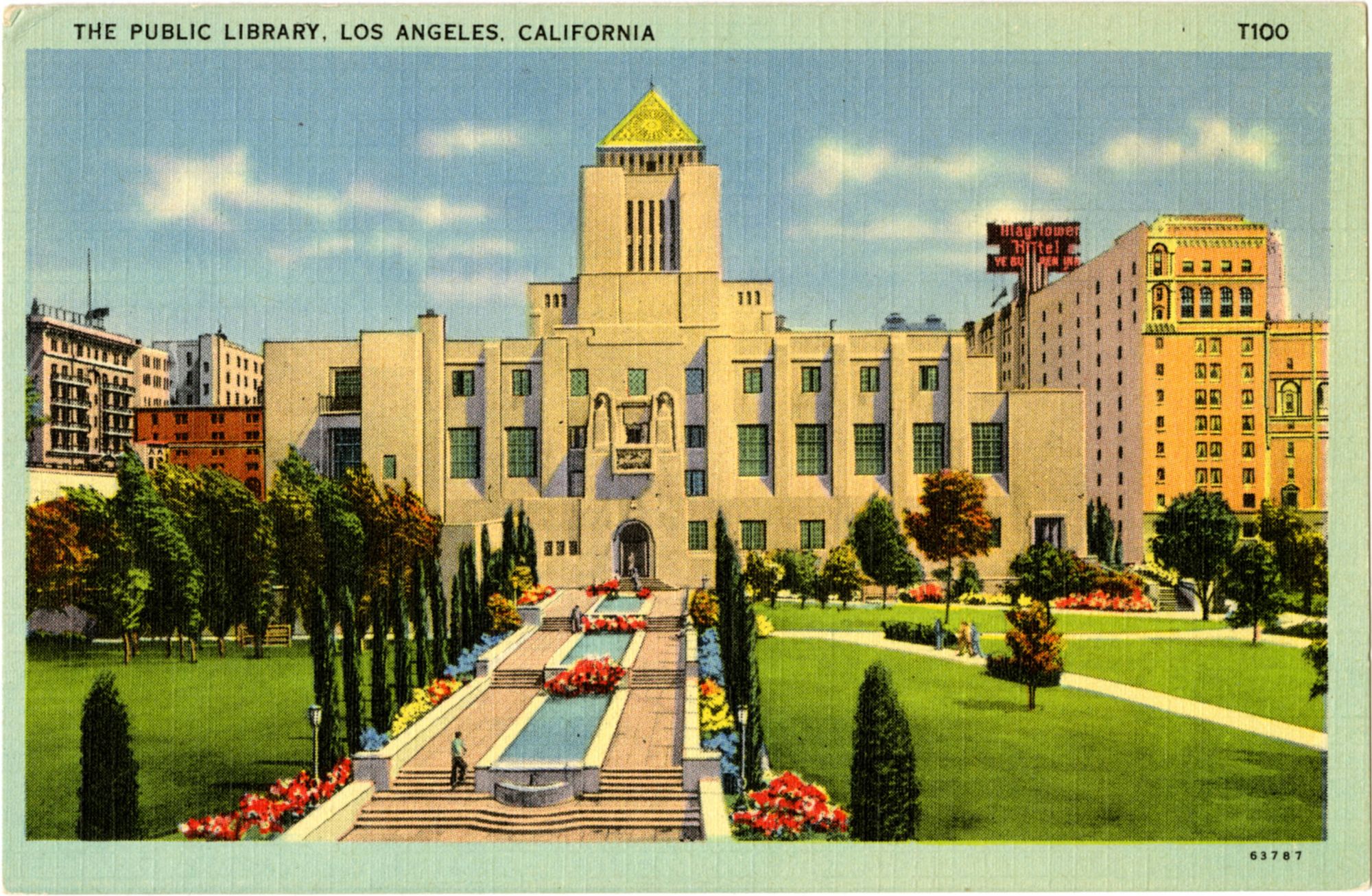
Key Ideas:
#1: If you’re looking for radical inclusion, go to the library! You want diversity? How about millions and millions of books from the smartest, kindest, most passionate, most compassionate, wisest, weirdest, clearest-thinking, most brilliant, and awesome people who have ever lived?
You’ll find all their books at the library, along with a virtually endless stream of books you’ve never heard of before, but now won’t be able to imagine living without. All of it is just waiting for you at your local library; and, what do they charge for this incredible service? Nothing, fucking nothing. So what are you waiting for? Maybe you can get there before they close!
#2: “The publicness of the public library is an increasingly rare commodity. It becomes harder all the time to think of places that welcome everyone and don’t charge any money for that warm embrace.”
#3: “Books are the last things that any human being can afford to do without.”
#4: “Taking books away from a culture is to take away its shared memory. It’s like taking away the ability to remember your dreams. Destroying a culture’s books is sentencing it to something worse than death: It is sentencing it to seem as if it never lived.”
#5: “The library is a prerequisite to let citizens make use of their right to information and freedom of speech. Free access to information is necessary in a democratic society, for open debate and the creation of public opinion.”
#6: “All the things that are wrong in the world in the world seem conquered by a library's simple unspoken promise: 'Here I am, please tell me your story; here is my story, please listen.'"
#7: Maybe invest in some smoke detectors?
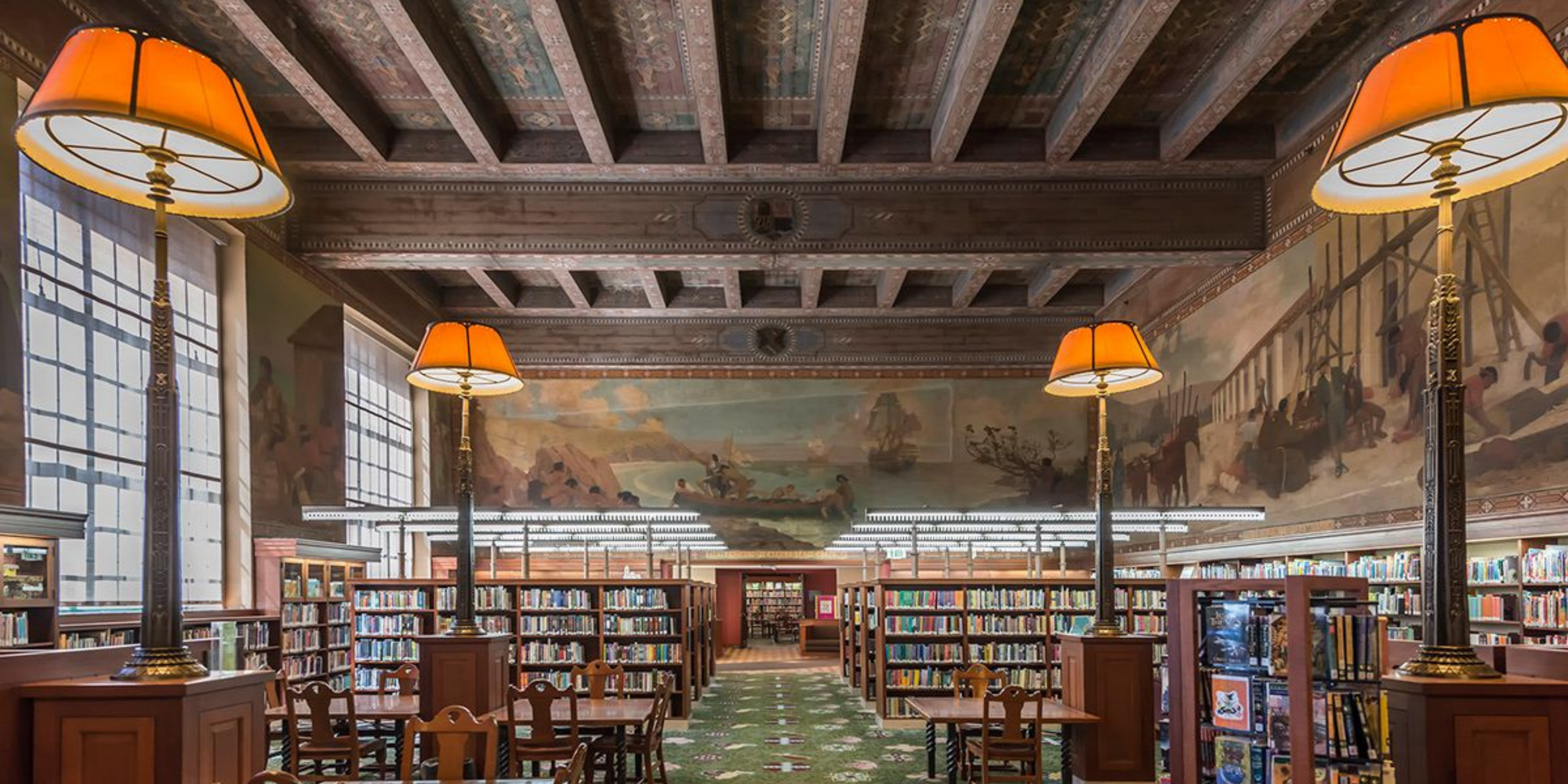
Notes:
“Our visits to the library were never long enough for me. The place was so bountiful. I loved wandering around the bookshelves, scanning the spines until something happened to catch my eye.
Those visits were dreamy, frictionless interludes that promised I would leave richer than I arrived. It wasn't like going to a store with my mom, which guaranteed a tug-of-war between what I wanted and what my mother was willing to buy me; in the library, I could have anything I wanted.”
“It was such a thrill leaving a place with things you hadn't paid for; such a thrill anticipating the new books we would read."
“If my mother ever mentioned to me that she was on the waiting list for some book at the library, I got annoyed and asked why she didn't just go buy it."
“In the library, we can live forever.”
“The publicness of the public library is an increasingly rare commodity. It becomes harder all the time to think of places that welcome everyone and don’t charge any money for that warm embrace.”
“Books are the last things that any human being can afford to do without.”
“It seems simple to define what a library is—namely, it is a storeroom of books. But the more time I spent at Central, the more I realized that a library is an intricate machine, a contraption of whirring gears.
There were days when I came to the library and planted myself near the center of the main corridor and simply watched the whirl and throb of the place. Sometimes people ambled by, with no apparent destination. Some people marched crisply, full of purpose. Many were alone, some were in pairs; occasionally they traveled in a gaggle.
People think that libraries are quiet, but they really aren't. They rumble with voices and footsteps and a whole orchestral range of book-related noises—the snap of covers clapping shut; the breathy whisk of pages fanning open; the distinctive thunk of one book being stacked on another; the grumble of book carts in the corridors.”
“Taking books away from a culture is to take away its shared memory. It’s like taking away the ability to remember your dreams. Destroying a culture’s books is sentencing it to something worse than death: It is sentencing it to seem as if it never lived.”
“The library is a prerequisite to let citizens make use of their right to information and freedom of speech. Free access to information is necessary in a democratic society, for open debate and creation of public opinion.”
“A book feels like a thing alive in this moment, and also alive in a continuum, from the moment the thoughts about it first percolated in the writer's mind to the moment it sprang from the printing press - a lifeline that continues as someone sits with it and marvels over it, and it continues on.”
“At first, the smoke in the Fiction stacks was as pale as onionskin. Then it deepened to dove gray. Then it turned black. It wound around Fiction A through L, curling in lazy ringlets. It gathered into soft puffs that bobbed and banked against the shelves like bumper cars. Suddenly, sharp fingers of flame shot through the smoke and jabbed upward. More flames erupted. The heat built. The temperature reached 451 degrees and the books began smoldering."
“They formed a human chain, passing the books hand over hand from one person to the next, through the smoky building and out the door. It was as if, in this urgent moment, the people of Los Angeles formed a living library. They created, for that short time, a system to protect and pass along shared knowledge, to save what we know for each other, which is what libraries do every day.”
“My mother imbued me with a love of libraries. The reason why I finally embraced this book project - wanted, and then needed, to write it - was my realization that I was losing her. I found myself wondering whether a shared memory can exist if one of the people sharing it no longer remembers it. Is the circuit broken, the memory darkened? My mother was the one person besides me who knew what those gauzy afternoons had been like. I knew I was writing this because I was trying hard to preserve those afternoons."
“Writing a book, just like building a library, is an act of sheer defiance. It is a declaration that you believe in the persistence of memory."
Ray Bradbury graduated high school in the middle of the Depression, so his family couldn’t afford to send him to college. Instead, he spent almost every day for the next 13 years at the Los Angeles Public Library, reading his way through each department.
Bradbury was alive when all of his books burned in the LA library fire.
“In the year leading up to Prohibition, when the ban on alcohol seemed inevitable, every book about how to make liquor at home was checked out, and most were never returned."
Althea Warren: “Librarians should read as a drunkard drinks or as a bird sings or a cat sleeps or a dog responds to an invitation to go walking, not from conscience or training, but because they'd rather do it than anything else in the world."
Warren wrote a sealed letter to the future City Librarian of LA, to be opened on the library's 100th anniversary. In it, she wrote that, 'Thirty-two-year-old troubles are almost sure to be amusing.'"
“Talking to him was like engaging in a fistfight with someone gazing at himself in a mirror while punching you.”
Albert Schweitzer: “All true living takes place face to face.”
“All the things that are wrong in the world in the world seem conquered by a library's simple unspoken promise: 'Here I am, please tell me your story; here is my story, please listen.'"
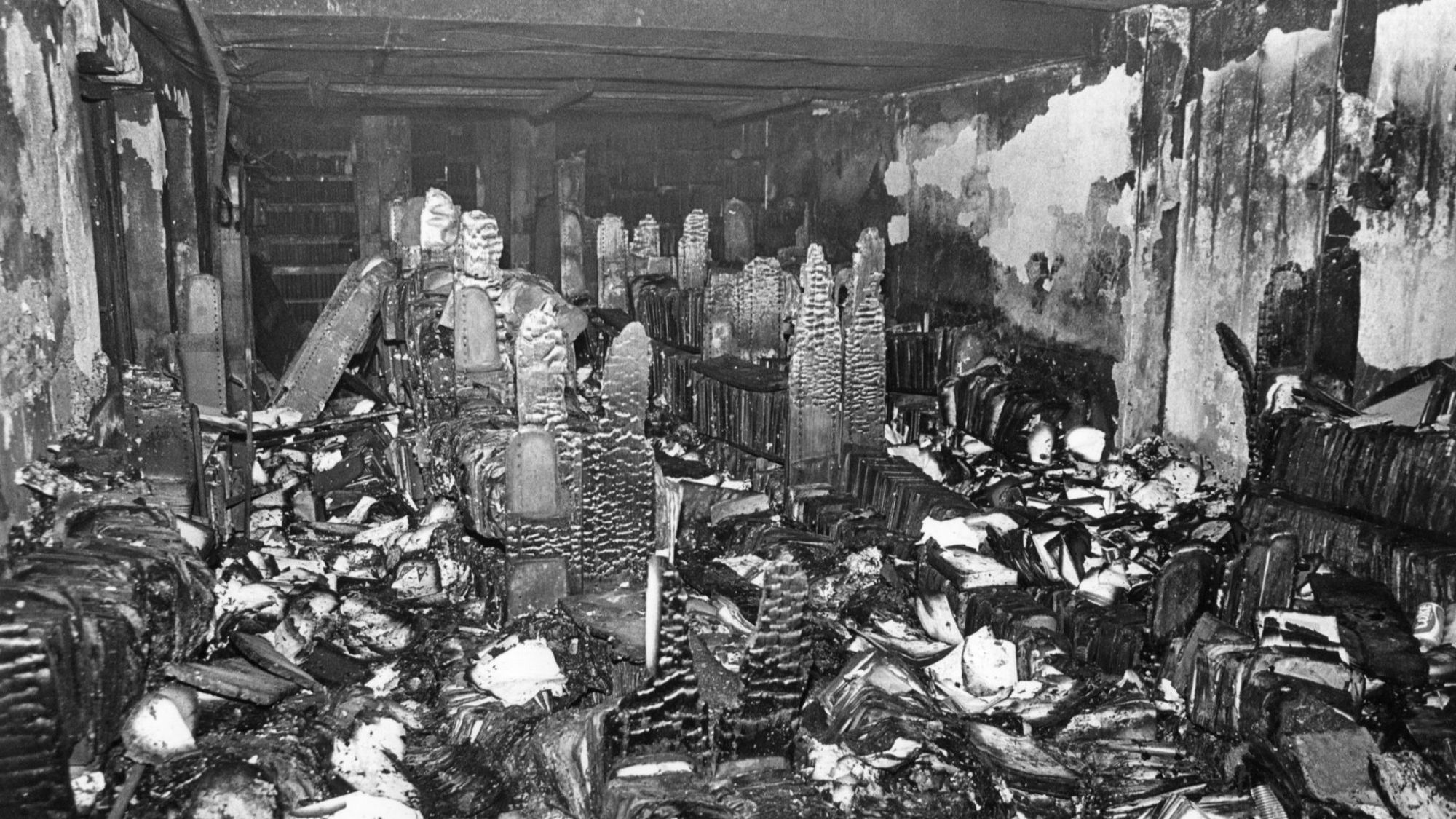
Action Steps:
So you've finished reading the book. What do you do now?
#1: Return your library books!
Do as I say, not as I do, and make sure you get those books back before the due date so the next person can read them!
Don’t be like me, who has had The Master and Margarita sitting in the trunk of his car for nearly a month, and who will just be reimbursing the library for its copy of Infinite Jest, rather than face the disapproving expressions which will greet me upon returning the book in the condition it’s been reduced to under my care.
At least I didn’t burn a whole library down, right?
#2: Donate your old books to someone who might actually read them.
I love having books around the house, but the number of books that I will actually ever pick up again is just a tiny fraction of the total. One of these days, I’ll stop being such a hypocrite and donate them to a food bank, library, or a shelter; somewhere they might get some use.
#3: Start a blog and share your reading list.
This is one of the best things I’ve ever done. It’s led to my future career as a writer, it has connected me with fellow readers all over the world, some of whom have become lifelong friends, and more than that, it’s just fun!
You never know who’s going to read your blog, but you have to start one, or else no one will.
Another thing that I just sort of lucked into was taking notes on everything I read. My unconscious decision to start doing that one day literally led to you reading these words right now. When I read my old notes, I’m always grateful that I decided to record some of the amazing quotes and ideas I would have otherwise forgotten.
#4: Email your favorite author and tell them what you loved or hated about their last book.
Most authors love hearing from readers, and surprisingly, they don’t just welcome positive emails. I mean, always be polite, but people like Ryan Holiday say they love hearing from readers who email them with things they disagreed with about the book, or wondered about, or wanted to see included but hadn’t been.
Plus, lots of authors have their contact info prominently displayed on their website, so you can just snag their email from there and send them a friendly message.
#5: Get a library card.
If you don’t already have one, which you should, because everyone’s doing it, get one. There’s even an app called OverDrive (ridiculous name, considering) that you can log onto with your library card number where you can download a bunch of ebooks and audiobooks right to your phone.
Some other apps I have on my phone are Scribd (think: Netflix for books), Audible, Kindle, and iBooks. Great for when you’re out and about and can’t really bring a physical book with you. Never be caught without a book!
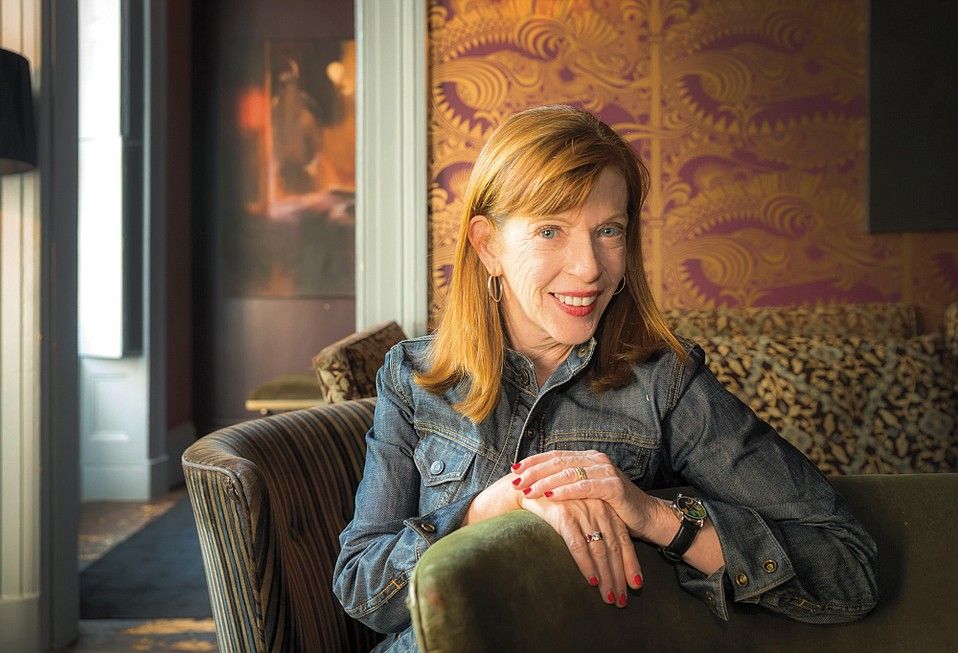
About the Author:
Susan Orlean is a journalist and bestselling author of The Orchid Thief and The Library Book. She has been a staff writer for The New Yorker since 1992 and has contributed articles to many magazines including Vogue, Rolling Stone, Esquire, and Outside.
Additional Resources:
LA Central Library - The Legacy of the Central Library Fire
This Book on Amazon:
The Library Book, by Susan Orlean
If You Liked This Book:
The Pleasures of Reading in an Age of Distraction, by Alan Jacobs
How to Talk About Books You Haven’t Read, by Pierre Bayard
Book by Book, by Michael Dirda

